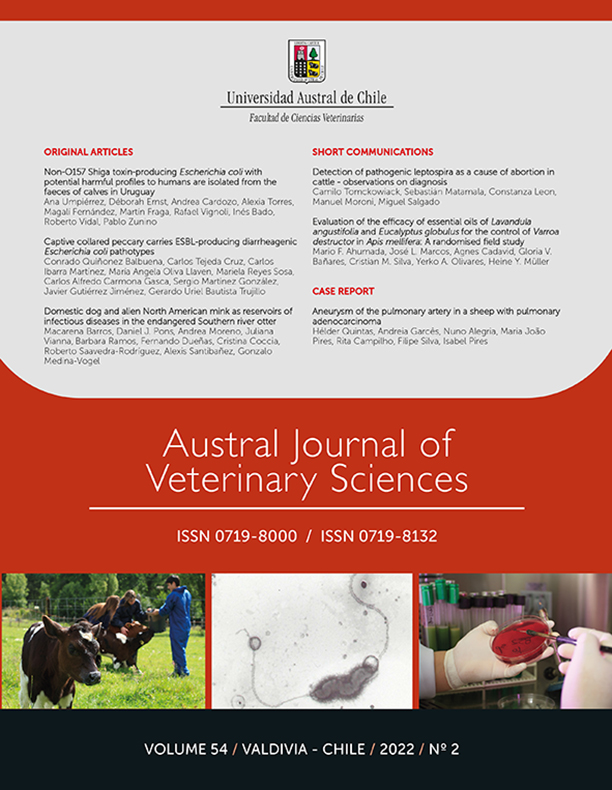Captive collared peccary carries ESBL-producing diarrheagenic Escherichia coli pathotypes
Contenido principal del artículo
Resumen
Collared peccaries (Pecari tajacu) roam the forests of natural areas in America. Wild collared peccary appears to be a carrier for bacteria associated with infections in humans and animals, however, the presence of diarrheagenic E. coli (DEC) pathotypes has not been studied in the captive collared peccary. This study aimed to study the prevalence of DEC, the susceptibility to antibiotics, and the frequency of β-lactamase genes (ESBL) in captive collared peccary faeces. DEC strains were identified in 44.4% (N=56) of the E. coli-carrying peccaries under study. The following DEC strains were identified: ETEC (35.7%), EAEC (28.6%), STEC (21.4%) and EPEC (14.3%). Most of the identified DEC strains belonged to clade I (58.9%). The genetic marker rfbO157 was not found in any STEC strain. Of the DEC strains, 67.9% (N=38) were considered multidrug resistant and were not susceptible to ampicillin (75%) nor to carbenicillin (51.8%). The combination of the genes blaTEM + blaCTX and blaTEM + blaSHV (6 strains respectively) was the most frequent among the DEC strains. It is concluded that captive collared peccaries are carriers of DEC strains that carry β-lactamase blaTEM, blaCTX and blaSHV genes and are not susceptible to ampicillin. Given the current efforts of the Wildlife Management Units (WMU) to reintroduce the collared peccary into natural areas, these captive collared peccaries act as carriers of diarrheagenic E. coli strains and therefore a potential source of gastrointestinal disease in humans and animals.

